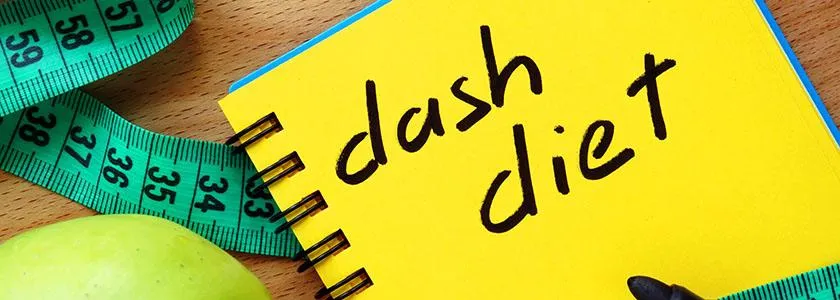Blogs

Unveiling the DASH Diet
In this episode of Lifestyle Matters.
Pass the 'DASH' on the table – The DASH Diet (Dietary Approaches to Stop Hypertension)
We often hear practitioners recommending the DASH diet to someone with high blood pressure. But how people friendly is this diet?
On this episode of Lifestyle Matters, Dr Ferghal and I explore the famous DASH diet.
This diet was developed in the 90s looking at the effects of a diet high in Calcium, Potassium and Magnesium and low Sodium levels on blood pressure. This ultimately translates to eating an abundance of fruits and vegetables with small amounts saturated and dietary fat.
The DASH diet study was published over 20 years ago demonstrating the impact of a low salt diet on our blood pressure.
A reduction of salt intake from 3.5gm to 2.5gm / day, showed a reduction of blood pressure by 7.1mm Hg and 11.1mmg Hg in a non-hypertensive and hypertensive individual respectively.
This is comparable to the effects of a blood pressure lowering medication hence the DASH diet has also been endorsed by the Heart Foundation and frequently recommended by doctors as a step in blood pressure management. However, compliance is low with this diet as it requires time and thought to meal prep.
Below is an illustration of the DASH diet

"Current recommended salt intake is about 5gm of salt / day = 1 tspn = 2000mg sodium"
Unfortunately, the average person consumes about 9gm of salt / day which is almost twice the recommendation. This is quite worrying. We often neglect the presence of hidden salt in our diet e.g. in our favourite pizza, or that handful of honey roasted almonds, or crackers etc. Making a habit of looking at the nutritional value of a food product we consume is good practice to increase our awareness of what foods constitute high sodium.
Of course, eating a predominantly whole foods plant-based diet with minimal / no processed foods will naturally reduce our salt consumption. Other factors that would assist in blood pressure reduction include regular exercise, stress management, good sleep hygiene, smoking cessation, and reduced alcohol consumption.
There is no doubt that blood pressure is an important risk factor in developing heart disease, stroke and vascular dementia. It also can affect our eye and kidney health. It is often known as the silent killer because it usually does not cause symptoms and tends to only be picked up when someone has their first heart attack or stroke.
Hence, even if the DASH diet may be difficult to adhere to, it's general principles i.e. eating a mostly plant based diet with some poultry and fish and minimal amounts of saturated fat and no processed foods would be a good guide to follow.

